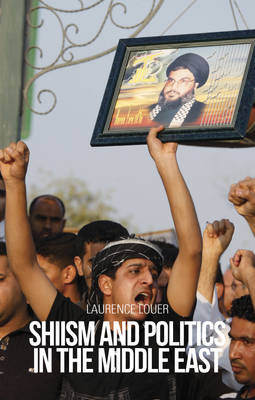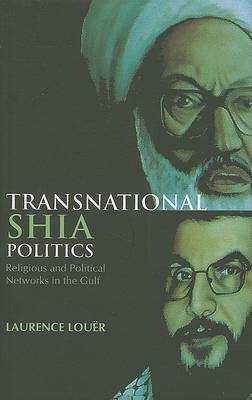Columbia/Hurst
2 total works
Laurence Louer's timely study immediately precedes the outbreak of unrest in Bahrain that triggered the escalation of the so-called Arab Spring of 2011. In addition to issues relating to the role of Shiite Islamist movements in regional politics, she provides context for the Bahraini conflict and Shiism's wider implications as a political force in the Arab Middle East. Louer's study depicts Bahrain's troubles as a phenomenon rooted in local perceptions of injustice rather than in the fallout from Shiite Iran's foreign policies. She more generally argues that, although Iran's Islamic Revolution had an electrifying effect on Shiite movements in Lebanon, Iraq, Saudi Arabia, and the Gulf, local political imperatives ultimately have been the crucial driver of developments within Shiite movements -- though Lebanon's Hezbollah remains an exception. In addition, the rise of lay activists within Shiite movements across the Middle East and the emergence of Shiite anticlericalism have diminished the overwhelming influence of the Shiite clerical institution.
Louer ultimately dispels the myth that Iran has determined the politics of Iraq, Bahrain, and other Arab states with significant Shiite populations. As revolution continues to spread across the Middle East, her analysis couldn't be more clarifying or necessary.
Louer ultimately dispels the myth that Iran has determined the politics of Iraq, Bahrain, and other Arab states with significant Shiite populations. As revolution continues to spread across the Middle East, her analysis couldn't be more clarifying or necessary.
Laurence Louer, author of the critically acclaimed To Be an Arab in Israel, brings her extensive knowledge of the Middle East to an analysis of the historical origins and present situation of militant Shia transnational networks. She focuses on three key countries in the gulf: Kuwait, Bahrain, and Saudi Arabia, whose Shia Islamic groups are the offspring of various Iraqi movements that have surfaced over recent decades. Louer explains how these groups first penetrated local societies by espousing the networks of Shiite clergymen. She then describes the role of factional quarrels and the Iranian revolution of 1979 in defining the present landscape of Shiite Islamic activism in the Gulf monarchies. The reshaping of geopolitics after the Gulf War and the fall of Saddam Hussein in April 2003 had a profound impact on transnational Shiite networks. New political opportunities encouraged these groups to concentrate on national issues, such as becoming fierce opponents of the Saudi monarchy. Yet the question still remains: How deeply have these new beliefs taken root in Islamic society? Are Shiites Saudi or Bahraini patriots?Louer's book also considers the transformation of Shia movements in relation to central religious authority.
While they strive to formulate independent political agendas, Shia networks remain linked to religious authorities ( marja') who reside either in Iraq or Iran. This connection becomes all the more problematic should the marja' also be the head of a state, as with Iran's Ali Khamenei. In conclusion, Louer argues that the Shia will one day achieve political autonomy, especially as the marja', in order to retain transnational religious authority, begin to meddle less and less in the political affairs of other countries.
While they strive to formulate independent political agendas, Shia networks remain linked to religious authorities ( marja') who reside either in Iraq or Iran. This connection becomes all the more problematic should the marja' also be the head of a state, as with Iran's Ali Khamenei. In conclusion, Louer argues that the Shia will one day achieve political autonomy, especially as the marja', in order to retain transnational religious authority, begin to meddle less and less in the political affairs of other countries.

